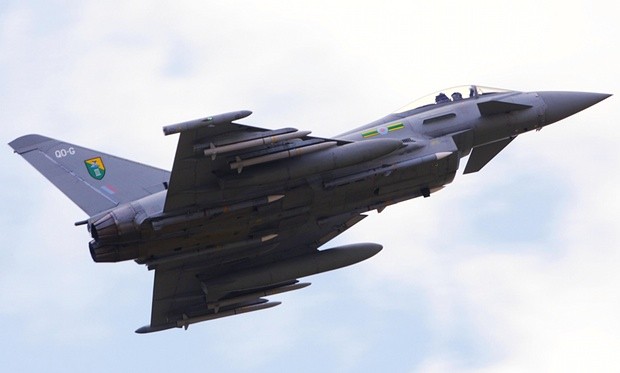UK troops to train Libyan army to fight ISIS, once accord government is formed

The Royal Air Force is already flying missions over Libya in preparation for a possible invitation by a Libyan government of national unity to help its army stabilise the country, including combating the growing threat of Islamic State (Isis), Tobias Ellwood, the foreign office minister, said on Tuesday.
Giving evidence to the foreign affairs select committee on the state of Libya, Ellwood stressed there was no possibility of UK troops going to Libya to fight Isis forces themselves, but that they may help with the training of the Libyan army if a government of national unity is formed. The forces would also help to train the Libyan patrol and facilities guard, responsible for protecting the vital oilfields. Some oil installations have been attacked by Isis.
Ellwood was pressed to disclose how many missions the RAF had flown, and whether they involved the use of drones, but he refused to do so.
He said the UK has no intention of getting involved in Libya in any kinetic form, but that “there are discussions being had to see what we can do to facilitate assistance once a government is actually formed to advise, assist, support and train. Just to confirm, no, we are not going in there to hold and take ground in any sense whatsoever.”
He said there was a distinction to be drawn between helping to defend and stabilise a government in Tripoli and any support that might be required to deal with Isis.
Britain has been reported to be looking to join an Italian-led force that would help to train and assist a Libyan army once a government of national unity is formed. Ellwood insisted that “it would be illegal to send in any support until a government is in place and an invitation is given to us to provide assistance in the training of their armed forces. Then we are happily going to look at that.”
He went on: “We are looking for a political agreement. Once that is in place, we can then work towards providing assistance to the Libyan national army, which can provide greater defences and take Isis out, and that is the order in which we wish to do things.”
Overall, his remarks probably go further than any minister in setting out the UK government’s intentions in Libya.
At present there are two governments in Libya; one internationally recognised, based in Tobruk, and another in Tripoli, and the UN has been working to get agreement between them to form a national unity government, but there are continuing disputes over the number and distribution of ministries. Numerous deadlines have been missed as the factions dispute the new constitution.
There are fears that the slow political progress to an agreement has left the door open for Isis to expand from its current base at the seaport of Sirte.
Ellwood estimated that there are fewer than 5,000 Islamic State supporters in Libya, which has been in chaos ever since the western intervention in 2011 that led to the toppling of Colonel Muammar Gaddafi. He admitted “Islamic State were taking full advantage of the vacuum that it faces due to the political chaos. We need to be very careful where this goes, because the absence of a government is allowing Isis to get a footprint in, and then expand.”
Ellwood warned: “Due to the topography in Libya, it is very easy to launch attacks on the oilfields.” He conceded that for local political factions, the threat from Isis is not as much of a priority as it is for the west, and so the threat was not acting as a spur for them to reach an agreement.
But Ellwood repeatedly sidestepped questions on the level of UK military involvement in Libya that would be required before the prime minister would feel the need to seek the approval of parliament. He also refused to say whether the UK would be willing to take unilateral action if the Libyan militias failed to form a government and Isis posed a threat to Libya’s oilfields. There is no constitutional rule setting out the circumstances in which the UK government should seek the approval of parliament, and there have been many times when UK troops have been involved in peacekeeping missions and parliamentary approval has not been sought.
But Labour leader Jeremy Corbyn has already written to David Cameron to request assurances that he will come to the Commons to seek the approval of MPs for any military action in Libya, something he already done before – at a high political price – with both Iraq and Syria. Ellwood said: “There are a lot of hypotheticals as to what might be our contribution and who we might do this with, either under a coalition, or bilaterally. It is for the prime minister to say how this fits in with the royal prerogative.”
Jonathan Powell, the UK special envoy to Libya, said that it should be possible to establish a coalition of armed groups to take on Isis. “There are a number of armed groups there sitting next to Isis who are more threatened than we are, who have the capacity to deal with it, but they need to be united, they need a common cause if they are going to do something,” he said.
How to submit an Op-Ed: Libyan Express accepts opinion articles on a wide range of topics. Submissions may be sent to oped@libyanexpress.com. Please include ‘Op-Ed’ in the subject line.
- Libya’s HCS invites applicants for key state roles - December 31, 2023
- UK calls on Iran to prevent escalation in Israel-Hamas conflict - November 05, 2023
- Libyan Interior Minister: Immigrant shelter costs a fortune - November 05, 2023


